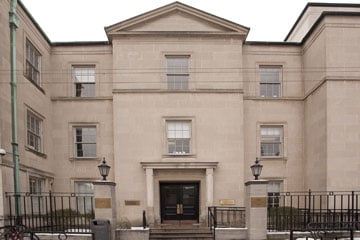
A tribunal panel heard Jeremy Diamond’s appeal Wednesday morning of a finding that he had failed to co-operate with a Law Society of Ontario investigation.

A tribunal panel heard Jeremy Diamond’s appeal Wednesday morning of a finding that he had failed to co-operate with a Law Society of Ontario investigation.
The lawyer appealed a hearing division decision that found he had committed professional misconduct by failing to co-operate fully with a probe into his advertising, marketing and referral fee practices.
LSO Bencher Raj Anand, who adjudicated the original discipline hearing, found that Diamond had failed to promptly provide various types of documents that law society investigators had requested. Diamond was subsequently reprimanded and ordered to pay $25,000 in costs.
In the appeal, Diamond’s lawyers argued that Anand made a number of legal errors and that his decision was unreasonable.
Brian Greenspan, one of the lawyers representing Diamond, contended that counsel for Diamond had responded to LSO requests promptly and that Diamond had acted in good faith.
“The only reasonable conclusion to reach from this series of exchanges shows not only co-operation but a high level of co-operation,” he told the appeal panel, made up of LSO benchers Jan Richardson and Howard Goldblatt and tribunal chairman David Wright.
The investigation into Diamond started as an inspection into the referral practices of his firm, Diamond & Diamond Lawyers LLP. Over the course of a number of months, the LSO requested records from Diamond that included bank records, journals, cancelled cheques and files relating to specific client matters.
Diamond’s lawyer and LSO investigators swapped more than 50 correspondences during that time about the records the regulator was seeking. The law society alleged Diamond failed to produce a number of requested records, including a general receipts journal and a general disbursements journal.
Once Diamond eventually provided full records, the law society dropped an allegation that he had failed to maintain proper bookkeeping practices before the hearing took place. But the law society went ahead with the hearing, alleging Diamond had failed to co-operate fully and promptly with the investigation.
At issue in the subsequent hearing was whether Diamond had acted in good faith to provide complete and prompt responses to the law society.
In his decision, Anand found that Diamond should have known the law society’s requirements to maintain proper bookkeeping and that the lawyer was aware from the outset that the regulator was investigating his referral fee practice. The subsequent correspondence “represented a ‘cat and mouse game’ that has no place in the relationship between licensee and regulator,” Anand wrote.
Greenspan said the evidence, however, pointed to misunderstandings of what records were being sought and that most of the back and forth between investigators and Diamond was due to technical issues.
“There was no effort to ever hide anything,” he said.
He added that allegations of failure to co-operate should not be measured against “a yardstick of perfection.”
Nisha Dhanoa, discipline counsel for the LSO, argued that Anand had made no error of law and that his decision was reasonable.
She said that it took eight months for Diamond to fully produce the records that the law society was seeking and which he is required to maintain under the law society’s bylaws.
“It took 50 to 60 communications to get that critical record that gave the law society insight into the flow of funds going through the licensee’s professional account,” she said.
The Law Society Tribunal Appeal Division reserved its judgment and will provide its decision in writing at a later date.